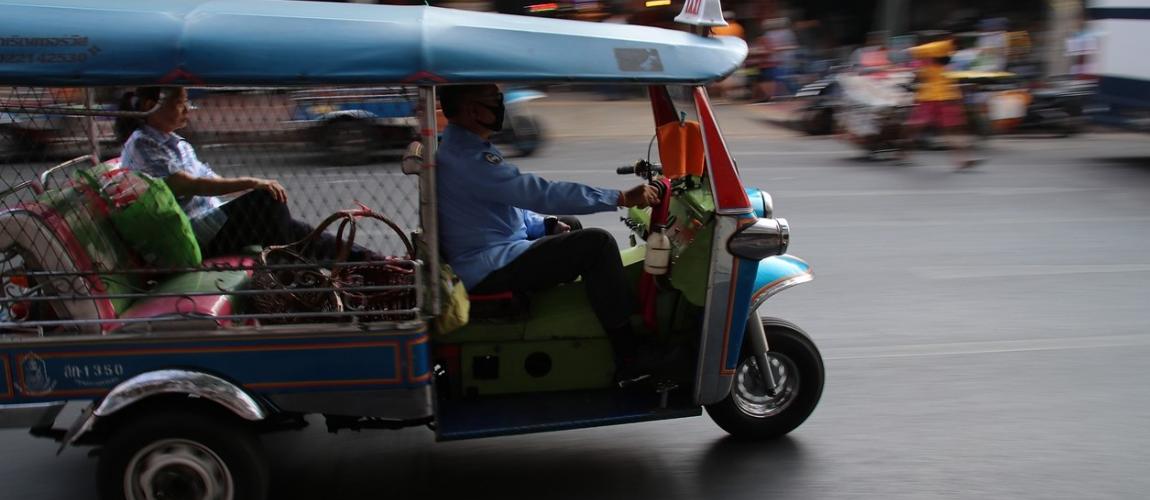Sector-Specific Laws and Regulations Promoting SMEs/Local Content

Photo Credit: Image by Culnature from Pixabay
Below you will find links to sector-specific laws and regulations on SMEs or local content promotion, including in energy and transport:
To find more examples, visit Laws and Regulations on Inclusion of SMEs in PPPs or download the summary of sample provisions here. Reference: Decreto 7888 de 15 de Janeiro de 2013 (Portuguese) This Decree requires that the bidding documents and contracts used to carry out the urban mobility components included in the Growth Acceleration Program (PAC) should provide for the mandatory purchase of domestic manufactured goods and national services according to the following criteria. For example: Reference: Handbook on the Minimum Acquisition Requirements for Manufactured Products and National Services - Urban Mobility Components of the Growth Acceleration Program. Cartilha sobre as Exigências de Aquisição Mínima de Produtos Manufaturados e Serviços Nacionais - Ações de Mobilidade Urbana do Programa de Aceleração do Crescimento – PAC (Portuguese) This handbook gathers the different guidelines established for the application and correct interpretation of those legal documents that refer to the minimum acquisition requirements of nationally manufactured products and national services under PAC. Reference: Regulation and Methodology for the Accreditation and Calculation of Local Content of LED Fixtures in Computerized Supplier Accreditation of Brazilian Development Bank - BNDES. Regulamento e Metodologia para o Credenciamento e Apuração de Conteúdo Local de Luminárias LED no Credenciamento de Fornecedores Informatizado (CFI) do BNDES (Portuguese) This Regulation derives from BNDES’s adoption of rules for the accreditation and financing of LED fixtures for Street lightning PPPs in Sao Paulo. The Regulation establishes the rules, criteria and applicable procedures for the accreditation of LED fixtures and its suppliers under the BNDES’s Accreditation Of Computerized Suppliers - Credenciamento de Fornecedores Informatizado (CFI) in order to apply for the bank’s financing. Reference: Rules for the Accreditation and Financing of Photovoltaic Equipment. Regras para o credenciamento e financiamento de equipamentos fotovoltaicos (Portuguese) These Rules establish a minimum ratio of components and production processes required for the BNDES’s financial support on photovoltaic equipment, and accreditation and maintenance of Computerized Supplier Accreditation (CIF). The Rules provide stages of local content that must be met by the fabricant for products made of crystal silicon and thin film, as well as percentages that must be met before set deadlines. Reference: Rules for the Accreditation and Financing of Wind Turbines. Regras para o credenciamento e financiamento de aerogeradores (Portuguese). Through these Rules, the BNDES aims to increase the local content of wind turbines through the production of their components in the country (Brazil). The methodology sets up “physical goals, divided by stages that should be met by the fabricants according to a pre-set schedule.” Reference: Decreto 309 de 2009 - by which the Integrated System of Public Transportation (Sistema integrado de Trasnporte Público, SITP by its acronym in Spanish) is adopted for Bogota (in Spanish) Through this decree, Bogota city adopted the “Integrated System of Public Transportation (SITP)”, and established the actions needed for the integrated articulation, link-up, and operation of the different modes of public transportation. This decree sets a very important precedent for the incorporation of SMEs and existing operators into new PPP projects. For example, the decree imposed "democratization" as a principle of the adoption process of the new transportation system. Specifically, it indicates that implementation of the SITP should aim to include the highest possible number of existing owners of public transportation vehicles and drivers, such as through new operation contracts. Reference: Jawaharlal Nehru National Solar Mission - Towards Building SOLAR INDIA This is a governmental initiative to promote a shift from non-renewable sources of energy to renewable sources of energy. The initiative notes that Indian’s solar industry depends heavily on imported materials, and so sets up incentive packages to promote PV and thermal system manufacturing plants. In addition, the initiative points out the importance of small and medium enterprises in shifting manufacturing of these components to India, and calls for supporting SMEs through “soft loans for expansion of facilities, technology upgradation and working capital” (D. Manufacturing capabilities: innovate, expand and disseminate). Likewise, the paper calls for providing support to local start-ups and SME in “through mentoring, networking and financial support” (7. Research and Development). Reference: Rwanda Energy Policy A key principle for the development and implementation of this energy policy is the empowerment of local companies. Therefore, the policy promotes, when deemed necessary, leasing government owned power plants to the private sector for operation and management in order to increase efficiency and create market opportunities for local business (Provision 2.4.4). Also, the policy aims to engage local enterprises in the energy sector by ensuring transparency and equity. “For example, the legal and regulatory framework for developing off-grid solutions will be streamlined to attract more local private investors and operators. While provisions to ensure that local content is a feature of new energy investments is already incorporated into concession agreements, new policy measures include standardizing “local content” guidelines suitable for different categories of projects, incorporating clear language on requirements into PPAs, and systematically monitoring compliance for local content participation” (Provision 2.4.5).Brazil
Colombia
India
Rwanda
Related Content
SMEs and PPPs
Type of ResourceLaws and Regulations on Inclusion of SMEs in PPPs
Type of ResourcePromotion of SME Participation in PPP Laws and Regulation
Type of ResourcePromotion of SMEs/Local Content in Public Procurement Laws and Regulation
Type of ResourceBidding Documents and Contractual Provisions regarding inclusion of SMEs in PPPs
Type of ResourceExamples of Policies of International Contractors Promoting SMEs
Type of ResourceExamples of Policies that Incorporate Existing Operators into New PPPs
Type of ResourceFurther Reading in SMEs and PPPs
Type of Resource
Additional Resources
Sub-national and Municipal PPPs
Type of ResourceGender Equality & PPPs
Type of ResourceSmall Scale Water Projects - Rural and Peri-Urban
How to foster a more inclusive environment for SMEs in PPPs?
Type of Resource